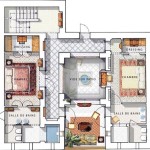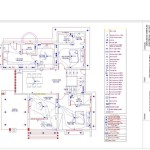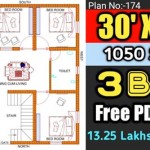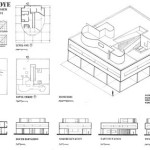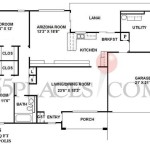Essential Aspects of Easy-to-Draw House Floor Plans
Creating floor plans is a crucial step in designing or remodeling a house. House floor plans act as blueprints that guide the construction and layout of a dwelling. Drawing house floor plans can seem daunting, but with a structured approach and attention to specific aspects, anyone can create easy-to-understand and functional floor plans.
1. Determine the Purpose and Context:
Before starting, clearly define the intended purpose and context of the floor plan. Consider the size and type of house, the desired layout, and any specific requirements or constraints. This will help you establish the overall scope and design principles.
2. Establish a Scale:
Choose an appropriate scale for your floor plan. Common scales include 1/4 inch = 1 foot or 1/8 inch = 1 foot. This will ensure that the plan is readable and accurate while fitting conveniently on a drawing sheet.
3. Plan the Room Layout:
Sketch out the layout of the rooms, considering their size, shape, and relationship to each other. Organize the spaces to maximize flow, privacy, and functionality. Start with the main living areas and then add bedrooms, bathrooms, and other rooms.
4. Include Walls, Doors, and Windows:
Draw walls to separate the rooms. Indicate the location of doors and windows, considering their impact on natural light, ventilation, and access. Use appropriate symbols and dimensions to represent these elements accurately.
5. Show Fixtures and Finishes:
Include the placement of fixtures such as sinks, toilets, showers, and appliances. Indicate the type of materials used for flooring, walls, and ceilings. This will provide a comprehensive overview of the finishes and details of the space.
6. Use Layers and Symbols:
Organize the floor plan into layers for walls, doors, windows, and fixtures. This makes it easier to edit and update the plan. Use standard symbols to represent different elements, ensuring clarity and consistency.
7. Annotate and Label:
Add annotations and labels to the floor plan, including room names, dimensions, and any special instructions or notes. These annotations will provide additional information and make the plan more user-friendly.
8. Use Software or Templates:
Consider using user-friendly software or online templates to create floor plans. These tools provide pre-defined symbols and templates, making the drawing process more efficient.
9. Review and Refine:
Once the floor plan is complete, thoroughly review and refine it. Check for accuracy, clarity, and functionality. Make any necessary adjustments to optimize the design and ensure that the plan meets building codes and requirements.
By following these essential aspects, you can create easy-to-draw house floor plans that effectively communicate your design intentions and provide a solid foundation for construction or remodeling projects.

Small House Design 2024001 Pinoy Eplans Floor Plans

2d Floor Plans Small Kitchen Design Home Plan

Est House Plans To Build Simple With Style Blog Eplans Com

House Plans How To Design Your Home Plan

Low Budget Simple House Design Plans For Builders Blog Builderhouseplans Com

Simple House Plans Blog Homeplans Com

House Plans How To Design Your Home Plan

Stylish And Simple Inexpensive House Plans To Build Houseplans Blog Com

Low Budget Simple House Design Plans For Builders Blog Builderhouseplans Com

How To Draw Blueprints For A House With Pictures Wikihow

